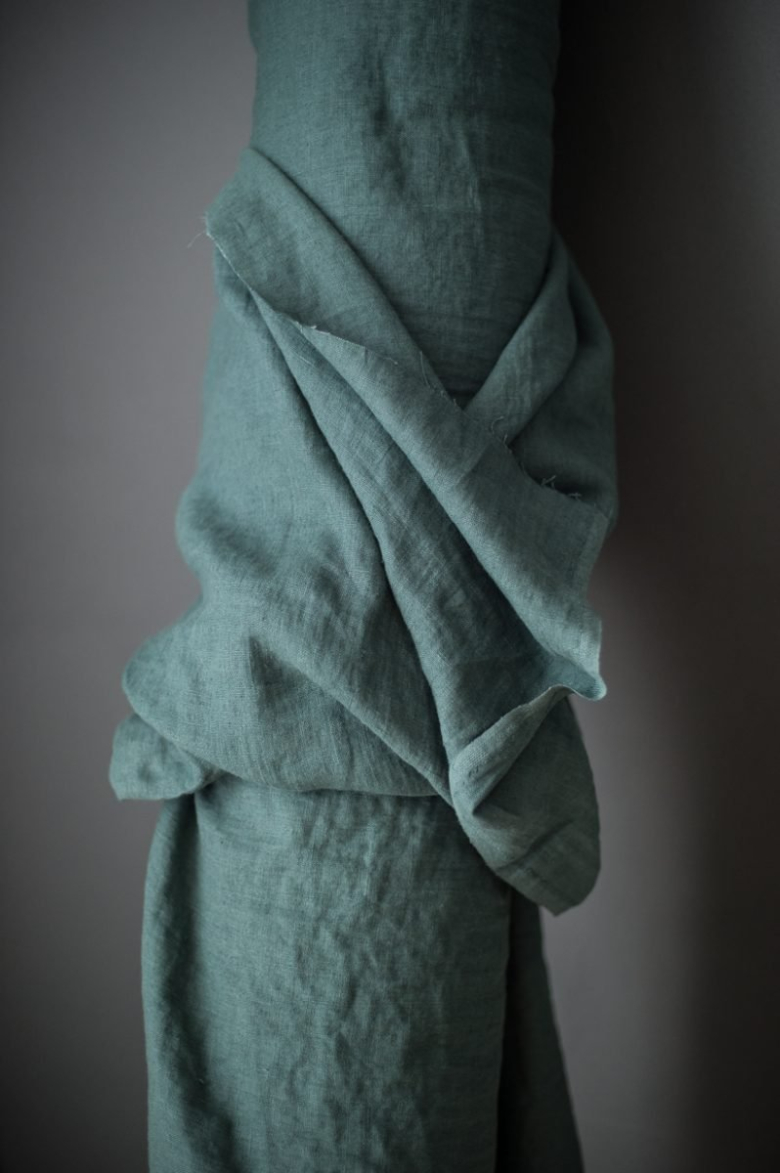European laundered linen, tumbled at the mill for softness and a super soft handle. A chalky green blue shade.
This slubby linen is made from special tow yarn which gives the cloth its nice raw textured appearance. It is the irregular character of the fibre that lends a lovely natural charm to this pure linen. It is produced in small batches in Eastern Europe where there is a strong heritage of spinning and weaving linen fabric.
Montane can be used in the home for loose covers, curtains, cushions, and light upholstery. It is also a great weight for trousers or light weight slouchy jackets.
This would work well for the Strides and Haremere coat and in our Workbook, or a sleeveless Trapeze dress.
We have 8 colours in this 260gsm linen range, to see these please click on ‘alternative fabrics’.
- 145cm wide.
- 260gsm or 7.7oz.
- 100% linen.
- Wash at 30 degrees with a non bio detergent. Shake out and dry flat. Linen will always seize up after washing but as soon as you start to use/wear it the fibres relax again.
- Martindale rub test for upholstery – 15,000 rubs (loose covers, occasional chairs)
- If you are using this linen for curtains we recommend using a lining to prevent fading.
- Never dry linen in direct sunlight as the colour can bleach and fade.
- This linen is Oeko-Tex certified.
- As all computer monitors show colours differently, we recommend ordering a sample of the cloth to check it is the right colour and weight for your project. To do so click on the ‘buy’ tab and then ‘add sample to cart’.
- Fabric can be ordered in 10cm increments. The minimum order is half a metre. For example, if you want 2.8m’s this is what you type in the box.
- Thread match Gutermann Sew All 553.
More about linen:
Linen is naturally stain resistant, does not pile, and is moth repellent. It is easy to wash as it can sustain high temperatures, is has very little if no shrinkage and is very strong.
It is anti-bacterial, anti-fungal, hypo allergenic and thermoregulating, it will also absorb up 20% moisture before feeling damp.
As the linen fibres have low elasticity (which causes it to crease) it will wear in any areas that are repeatedly folded in the same place for a long time, however it does have much better abrasion resistance than say cotton.
Eco Credentials:
Flax is a strong plant best grown in northern Europe. It needs little or no fertilisers and due to the local climate, little extra water. It doesn’t really require many pesticides either as it can grow in poor quality soil. The Advisory Commission Report to the European Parliament stated that flax cultivation has positive effects on eco-system diversity as it allows for an “environmental pause”. One hectare of flax can retain 3.7 tonnes of CO2. Every part of the plant is used, what isn’t used to produce linen can be used to make linseed oil, paper, cattle feed or even soap.
Linen is therefore almost naturally organic. It is completely biodegradable, recyclable and due to its natural absorbency, it requires less dye than cotton. Linen therefore scores high on the ecological chart.
